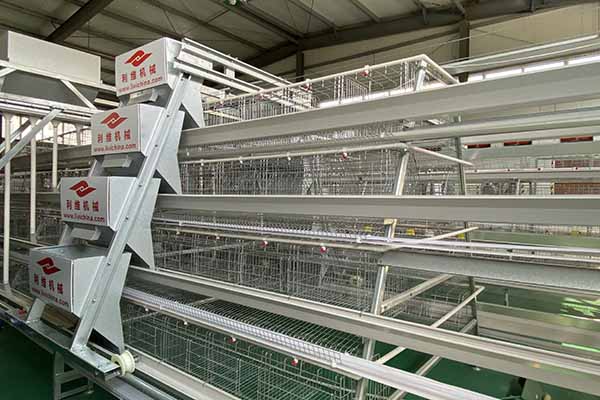Kuroiler Poultry Farming in Kenya: A Comprehensive Guide
Time : 2025-05-14
Kuroiler poultry farming in Kenya has gained immense popularity over the years. It’s not just a business venture but a way of life for many. This article aims to provide you with a comprehensive guide on Kuroiler poultry farming in Kenya. We will cover everything from the basics of Kuroiler farming to the latest trends in the industry.
What is Kuroiler Poultry Farming?
Kuroiler poultry farming is the process of rearing and managing Kuroiler chickens, a breed developed in the Philippines. Kuroiler chickens are known for their hardiness, disease resistance, and high egg production. They are the perfect choice for small-scale farmers looking to start a poultry business in Kenya.
Why Choose Kuroiler Chicken?
Kuroiler chickens are a popular choice for several reasons:
1. Hardiness: Kuroiler chickens are highly resilient and can withstand harsh weather conditions, making them ideal for farming in Kenya.
2. Disease Resistance: These chickens are known for their strong immune system, which helps reduce the risk of disease outbreaks in your farm.
3. High Egg Production: Kuroiler chickens lay a significant number of eggs, making them a profitable venture for farmers.
4. Easy to Raise: Kuroiler chickens are relatively easy to manage and require minimal space, making them a perfect choice for small-scale farmers.
Setting Up Your Kuroiler Poultry Farm
Location
The first step in setting up your Kuroiler poultry farm is to choose the right location. Look for a place that is accessible, has enough space, and is not prone to flooding or other natural disasters.
Infrastructure
Your farm should have the following infrastructure:
1. Chicken Coop: Build a secure and comfortable coop for your chickens. Ensure it is well-ventilated and has enough space for the chickens to move around.
2. Feeding Area: Set up a separate feeding area to prevent the spread of diseases.
3. Water Source: Ensure a constant supply of clean water for your chickens.
Equipment
You will need the following equipment to start your Kuroiler poultry farming business:
1. Feeders and Drinkers: Automatic feeders and drinkers will save you time and ensure that your chickens receive the right amount of food and water.
2. Bedding Material: Use bedding material like sawdust or straw to keep the coop clean and comfortable for your chickens.
3. Heater: In colder regions, a heater can help keep your chickens warm.
Raising Kuroiler Chickens
Breeding
To ensure a steady supply of Kuroiler chickens, you will need to breed your flock. Choose the healthiest and most productive chickens as your breeding stock. Ensure that you maintain good hygiene during the breeding process to prevent disease outbreaks.
Feeding
Kuroiler chickens require a balanced diet to maintain their health and productivity. Provide them with a high-quality feed that contains all the necessary nutrients. Ensure they have access to clean water at all times.
Health Management
Regular health checks and vaccinations are crucial for keeping your Kuroiler chickens healthy. Keep an eye out for any signs of disease and act quickly to address them.
Challenges and Solutions
Like any business, Kuroiler poultry farming in Kenya comes with its own set of challenges. Here are some common challenges and their solutions:
1. Disease Outbreaks: Keep your chickens healthy by maintaining good hygiene and implementing a vaccination program.
2. Feed Costs: Opt for locally sourced feed to reduce costs.
3. Market Demand: Stay informed about market trends and adapt your production accordingly.
Conclusion
Kuroiler poultry farming in Kenya is a rewarding and profitable venture. By following this comprehensive guide, you can set up and manage a successful Kuroiler poultry farm. Remember to stay informed about the latest trends and innovations in the industry to keep your business competitive.
Tags












